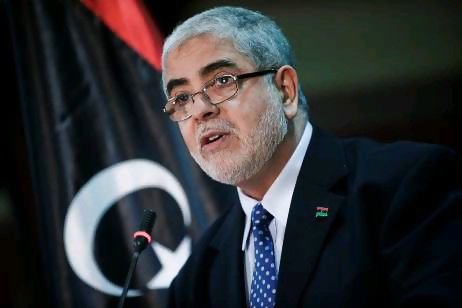By Ashraf Abdul Wahab and Michel Cousins.
Tripoli, 12 September:
Libya’s Deputy . . .[restrict]Prime minister, Mustafa Abushagur, has been elected by the General National Congress as Libya’s new Prime Minster. In the second, run-off round, he beat Mahmoud Jibril by the thinnest of margins. He took 96 votes to Jibril’s 94. Of the 190 members present and voting, he won a wafer thin 50.53 percent of the votes compared to Jibril’s 49.47 percent.
Congressmen and women gathered at 6 pm for the contest which started with the announcement of the names of the eight candidates followed by the first round of voting which lasted about an hour and a half. The results for that were:
- Mahmoud Jibril : 86
- Mustafa Abushagur: 55
- Awad Barasi: 41
- Abdulhamid Al-Nami: 3
- Mohamed Mabrouk Al-Zway: 2
- Fathi Al-Akkari: 1
- Mohamed Al-Mufti: 1
- Mohamed Berween: 1
The presentations by all eight candidates to Congress on Tuesday and Wednesday do not seem to have made any impression on members. It was generally agreed, for example, that Berween had made a good impression, but it still only won him one vote.
The session was then adjourned for a 15-minute break and then restarted with the second round of voting for Jibril and Abushagur. It lasted about two hours during which there was an exchange of words between the candidates and supporters over the validity and the manner of voting.
For days, no one was sure what the final results would be until they were announced. The process has been gridlocked almost since the elections in July. Over a week ago, Jibril’s supporters claimed, accurately as it turned out, that he had the support of some 85 members of Congress. Both Abushagur’s and Barasi’s supporters were claiming at the time more support than they actually got.
Even so, there were many who were convinced that the run-off round was going to be a contest between Jibril and the Muslim Brotherhood’s candidate, Electricity Minister Awad Barasi. In the event, Barasi was never able to get more than the forty or so votes he actually won in round one despite two attempted deals between Jibril and the Brotherhood’s Justice and Construction Party (J&C).
The contest shows yet again the rejection of the Brotherhood. As in the July elections when the J&C won less than half the seats of Jibril’s National Forces Alliance (and even less of the popular vote), today’s vote for prime minister had it again winning less than half the votes that went to Jibril.
His problem appears that he was unable to break through the ceiling of support that he had from the moment the Congress was elected in July. He managed to pick up just eight extra seats in the final round but the lion’s share, and almost all of Barasi’s support, went to Abushagur.
It is not known if the killing of the US ambassador last night affected the decision of Congress members. There was widespread speculation during the day that it would help Jibril because he is seen as the stronger leader who would take decisive action to impose the government’s will and end the political vacuum that many believe currently exists. In the event, it does not seem to have had any effect.
Abushagur is expected to take over next month. He now has to draw up a cabinet and present it to the General National Congress for approval. This will take another two weeks. [/restrict]









